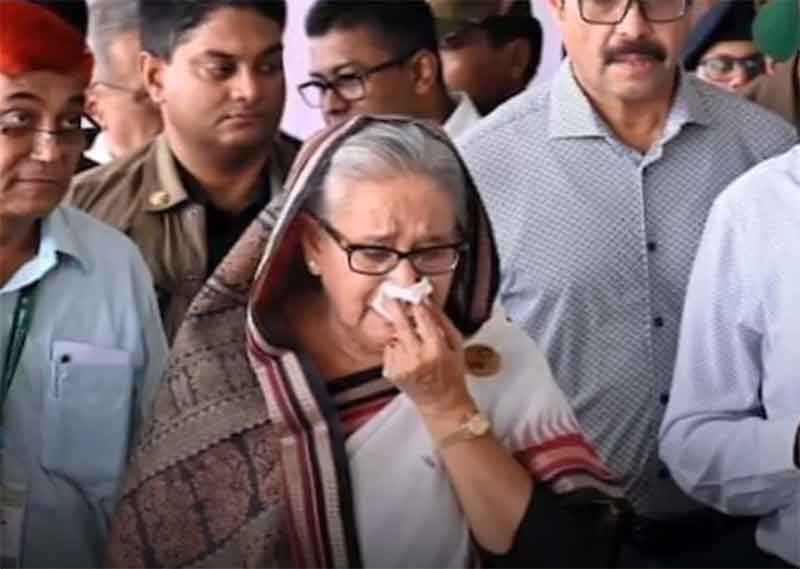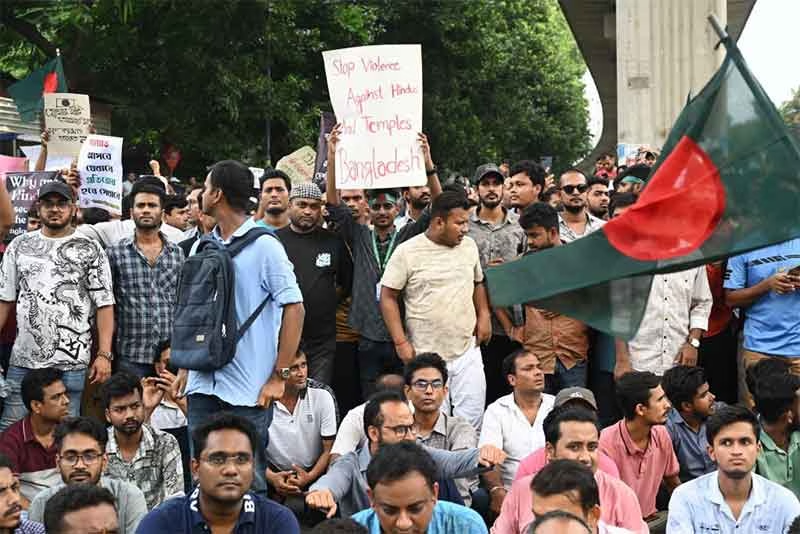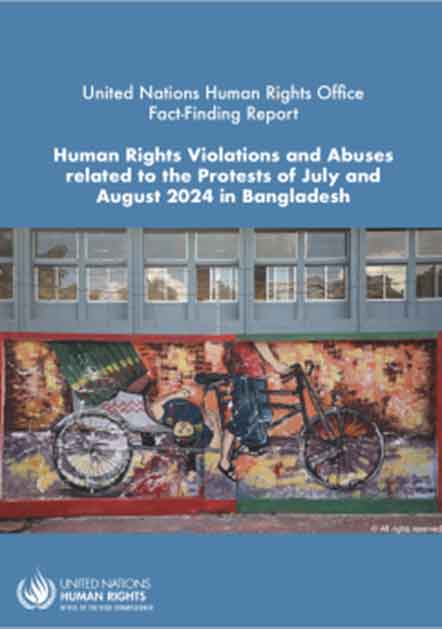
One.
Let us cast our gaze upon the world-stage in the year past: four nations ─ Pakistan, Sri Lanka, Bangladesh, and India ─ at the mercy of elections, the earth trembling beneath politicians’ feet, while wars flaring across distant lands: Israel-Gaza, Ukraine-Russia, Myanmar-Rakhain and many more. The mighty tectonics of geopolitics was shifting. Portents lost in noise. From the ballot box to the battlefield, horror created by human civilization gave voices to those who dared to express a mounting global unease.
Amidst them, seeking winds of change were nations like China, India, Russia, and Turkey. Were there a path to redraw the contours of power, daring to defy post WWII alliances? What we here now is howling, from Damascus to Dhaka, whispering omens: the rise of a leftist helm in Sri Lanka, the conspiratorial ousting of the Prime Minister and the manufactured unrest in Bangladesh, and the fall of Assad — tremors shaking the old equilibrium. The flames of the Israel-Palestine conflict, the grim stalemate in Ukraine, and the march of far-right politics across Europe only deepened our sense: our world is being unmoored, shadowed, drifting from the known into the uncertain.
Two.
In recent years, the phrase ‘Rules-Based International Order’, RBIO, has echoed through the white painted Aqua Creek sandstone walls of Washington, to the Marble floors of the Brussels, Tokyo, and Canberra. Draped in the language of virtue, a gleaming sigil rises ─ calling itself the North Star, beckoning the world toward dreams of cooperation, peace, and justice, as in reality, storm clouds of trade wars gather on the horizon.
Beneath the glittering lexicon lies a knotted web of contradiction and shifting ambition.
What, truly, do these “rules” comprise?
Who has the divine quill that scripts them?
Why, now more than ever, does this order stand questioned?
And what ailment afflicts this order?
Three.
In 2024, the turbulent elections of South Asia ─ Bangladesh among them─together with the fires of the Middle East and the frozen war in Ukraine, ripped apart the fragile veil of global politics. The Rules-Based International Order, reveals a more fluid reality ─ where these laws are mutable, and peace and consensus, at times, remarkably exclusive. As power shifts and ideologies clash, the road ahead for South Asia appears obscured by dust and storm. What reels beneath the weight of doubt and dissent is that the United States and its allies are the most creative interpreters of these unseen “rules” embedded in the RBIO ─ the once hailed liberal utopia.
Four.
The “Rules-Based International Order” emerged during post-World War II and claimed to promote peace and stability. However, nations like the U.S. reject international courts’ warrants when they are in favour of their allies, and keep quiet about any order, but eagerly support them against enemies. This exposes the hollow nature of the terms “justice” and “stability.” During recent changes in Bangladesh, the contradictions are even clearer. For 15 years, the struggle to preserve fragile peace was the nation’s inner strife. Growth bloomed, and diplomacy prospered, even the Western allies, though wary, upheld the administration. Yet in 2024, a storm brewed. Generations of the Islamists, long opposed to secular democracy, threatened unity, with its links to extremist factions, undermined the very democracy the country sought to protect.
Five.
The nature of the “Rules-Based Orders” has been increasingly questioned world-wide. Its peace efforts fractured under the Cold War. Once celebrated with the fall of the Soviet Union, it is now at its breaking point. China and Russia, once rivals, now defy Western influence. The phrase “Rules-Based International Order” popularized by Hillary Clinton during her tenure as U.S. Secretary of State (2009–2013) under President Barack Obama, has outlived its relevance. What once held Asia under a Western thumb now faces reckoning. Even the new American president stands accused of unravelling this order. Is this the time of its collapse ─ or the birth of a new multipolar world? Millions wonder!
Six.
Bangladesh stands between development commitments with China and India. China’s Belt and Road investments, like the Padma Bridge, symbolized the growing Chinese influence, while India remained a neighbour of friendship and stable development ties. As both giants loom large, and with the Interim Government in power and Muhammad Yunus at the helm since 8 August 2024, Bangladesh’s foreign policy has grown increasingly tangled. It is no secret that Yunus is aligned with the interests of the USA and its allies, and without any mandate from the people he is making unilateral decisions. On the streets, in public institutions, in culture, and across the media, his allies Islamist and opportunists wage a war against the spirit of 1971─ demonizing those who fought for the nation’s liberation, and worked to secure its independence. Foreign policy of Muhammad Yunus has become a battlefield.
Seven.
Meanwhile, Muhammad Yunus’s government has been attempting to reshape the geopolitical landscape by shifting ties with other nations. Sheikh Hasina’s departure marks the end of an era where Bangladesh played the role of a careful mediator—demonstrated during the Rohingya crisis, as it balanced relations between Myanmar and India—a lasting testament to its diplomatic strength. Now, with the country’s future in the hands of untested leadership, that art of strategic balancing has been abandoned. Yunus has chosen sides, rejecting neutrality—once the nation’s defining hallmark.
Eight.
Despite criticism, the long period of Sheikh Hasina’s leadership marked a period of growth and stability. Yet plagued by criticism ─ faced unrelenting opposition from Islamist factions and their ally Bangladesh Nationalist Party, both heirs to two separate visions of the nation, to make the legacy of 1971 spirit a land of duel, which complicated its development and global standing. The West raised its brow, emphasized allegation ns of authoritarianism, electoral manipulation, and silencing of dissent. The BNP’s boycott of elections alignment with Islamic party Jamaat E Islam deepened the democratic process. Democracy, though alive, strained under a shifting world order. Since July 2024, the opposition has not only confronted a ruling party but the very spirit of 1971.
Nine.
Then came April—a twist. Under UN guidance, the government announced a humanitarian corridor for the Rohingya, offering an outlet to help the Arakanis in their perilous plight, under the UN guidance, though, it was clearly a motivation to tie up with the USA. Applause followed from Western agencies. But scepticism lingers in some quarters about whether this gesture will translate into lasting support for the Rohingya, or if it’s merely a political manoeuver amidst growing pressures.
Ten.
Within, Bangladesh’s politics bleed into its diplomacy. To thrive, the country must embrace its strength to walk between titans, to speak softly between silences, to be the tide, not the rock. The Bay of Bengal cradles her still ─ a nation not of force, but of placement. A delta of peace, poised between tectonic plates, where diplomacy is carved not by allegiance, but by wisdom. As the world demands choices, Bangladesh’s power lies in not choosing at all ─ but in weaving harmony from discord, and finding a voice amid the roar of empires, rising not by taking sides, but by embracing its strength of balance. It can reclaim its place as a beacon of stability in an increasingly tumultuous world.
Eleven.
For the country the question is not merely about survival, but about the future it can carve for itself. The geopolitical storms may rage, but Bangladesh has always been resilient, its history marked by adaptability and pragmatism. Now, more than ever, the country must prioritize its own stability, prosperity, and the welfare of its people. Which can be done by maintaining neutrality, strengthening alliances, prioritizing human dignity, and investing in its own development, Bangladesh can emerge from this moment as a beacon of stability in an increasingly fractured world.
In the coming years, as the tectonic plates of geopolitics continue to shift, Bangladesh must strive to walk its delicate path of balance. The people, therefore, are raising their voices against a sceptical ‘humanitarian corridor’ and decisions taken unilaterally by the Interim Government.
For a nation born from the will of its people, no roadmap can endure if drawn without their consent.
Subscribe to Our Newsletter
Get the latest CounterCurrents updates delivered straight to your inbox.
Jahanara Nuri, Writer and journalist covering global politics, human rights, culture & terrorism with a focus on South Asia. Her work has appeared in Humanisten, LKPG.News, Omvärlden, and ASTRA.fin. She writes in three languages. A storyteller at heart, Nuri uncovers the human stories behind the news from hidden corners of the globe.















































